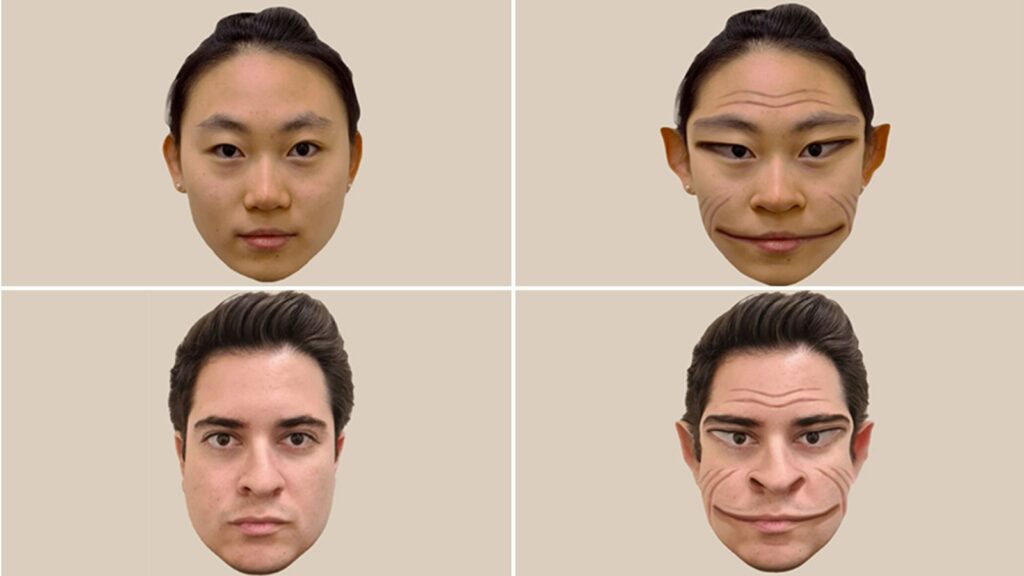
Upon awakening in November 2020, Victor Sharrah found himself in a disconcerting state, perceiving the world around him as if inhabited by demons. Faces appeared distorted, with exaggerated features and deep furrows, leading to a sense of profound fear and unease. For the 59-year-old resident of Clarksville, Tennessee, this experience was undeniably terrifying.
His condition, identified as prosopometamorphopsia (PMO), is an exceptionally rare neurological disorder that distorts facial perception. An intriguing aspect of Mr. Sharrah’s case was his ability to view faces on screens or paper without distortion, allowing researchers a unique opportunity to study and replicate his visual experiences.
The findings of this study were recently published in the esteemed medical journal, The Lancet, showcasing the recreation of PMO distortions in visual form.
PMO, with fewer than 100 documented cases, remains a mystery in terms of causation. Scientists speculate that dysfunctional brain mechanisms responsible for facial processing may underlie this phenomenon. Variations in distortions exist among individuals, ranging from droopy eyes to “witch-like” features.
Unlike hallucinations associated with mental disorders, individuals with PMO possess an awareness of the visual abnormalities, acknowledging the discrepancy between reality and their distorted perceptions.
Triggers for PMO in Victor Sharrah’s case were proposed, including past carbon monoxide poisoning and a head injury resulting in a brain lesion. Additional factors such as a history of bipolar affective disorder and post-traumatic stress disorder were noted in the study.
While PMO symptoms typically resolve within weeks, some individuals may experience prolonged effects, as evidenced by Mr. Sharrah’s continued visual disturbances.
Methods of coping, such as communal living and utilizing green-tinted glasses for symptom relief, have proven beneficial in managing the condition. Mr. Sharrah emphasizes the importance of raising awareness and understanding that PMO can be effectively managed.
The lead author of the study, Antonio Mello, a PhD student affiliated with Dartmouth’s Social Perception Lab, highlights the lack of awareness among medical professionals regarding PMO, underscoring the potential for misdiagnosis and inappropriate treatment. His insights shed light on the unique challenges faced by PMO patients and the need for accurate diagnosis and tailored interventions.
Special thanks to The Lancet for their contribution to this study.

 Latest Breaking News Online News Portal
Latest Breaking News Online News Portal




